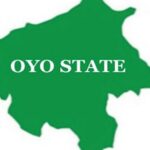Experts from the Nigerian Institute of Building (NIOB) gathered virtually last week for a mandatory professional development workshop to deliberate on emerging issues in building construction.
During the two-day conference which focused on “Sustainable Building Services Practices: Enhancing Performance and User Satisfaction”, the experts explained basic proper institutions that will enhance user-comfort in buildings possible.
The President of NIOB, Builder Kunle Awobodu, asserted that quality in building production, enhanced building performance and habitability were not chance events.
Bldr Awobodu explained the terms “building services” otherwise known as “electro mechanical services” to mean and include all that contribute to the comfort of users and utility of buildings such as lighting and other electrical works, plumbing works and transportation system in buildings such as lifts and escalators.
He explained that, “In typical and simple buildings, the commonest are the lighting and plumbing systems. The plumbing system includes pipes, fittings, inspection chambers, septic tanks and soak away pits.
“The systems give headaches to end users of buildings where designs and installations are not properly done. It is the search for solutions to these nagging problems and the strategic position of the builder in the process that warranted this workshop.”
A Professor of Building Services at the Ahmadu Bello University (ABU), Zaria, Ikemefuna Mbamali, explained the building services ecosystem from the design, equipment and component, selection, optimisation and spatial coordination to user behaviour, noting that a comfortable house was a function of the entire ecosystem.
A former President of the Council for the Regulation of Engineering in Nigeria (COREN), Engr Ibikunle Ogunbayo, who spoke on building services from the design stage up to maintenance, argued that buildings were more than the structures, and that the performance of its (building) services gave meaning and comfort.
Engr Ogundayo further said that in some buildings, services might take up to 50 per cent of the total cost of construction, and gave example with a typical hospital building which serves as both a hotel and a clinic.
Other building experts like Dr Buhari Manzuma and Olugbenga Ayeni from ABU gave insights on building services that give users comfort. They explained the imperatives of testing and the various tests for electrical installation towards improving safety in buildings and proposed a checklist for building services installation to avoid rework.
On his part, a quantity surveyor and researcher, Dr Oluwole Olatunji, took the audience through early stage pathology of building services, explaining defects and the cost implications on facilities’ operations and maintenance.
Dr Olatunji argued that there were no perfect designs, as building drawings might be the answer to the difference between designs and what were built, explaining that builders translated designers’ imaginations to reality and often fixed design errors during construction.
According to him, Africa does not lack capacity for building edifices, citing examples of the pyramids in Egypt, adding that the problem of Africa was just the “challenging environment”.
The Managing Director (MD) of the Federal Mortgage Bank of Nigeria (FMBN), Arc Ahmed Dangiwa, challenged the builders on the issue of material inputs for housing development.
Echoes of problems of services in completed buildings reverberated from the presentations with a call on government at all levels and professionals to adopt the National Building Code with its compliance forms which would enable designers and builders to attest to their input in the building delivery process thereby blocking unprofessionalism in building services design and installation.

 Join Daily Trust WhatsApp Community For Quick Access To News and Happenings Around You.
Join Daily Trust WhatsApp Community For Quick Access To News and Happenings Around You.


